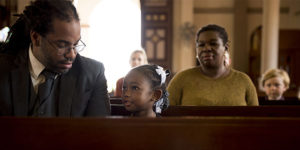
At Christmas time, the little town of Bethlehem (literally ‘the house of bread’) gets a moment in the spotlight. But what’s so special about this rural town just outside Jerusalem? Why did Jesus have to be born there?
When King Herod asked the Jewish leaders where the Messiah was to be born, they answered him with a quote from Micah 5:
‘But you, O Bethlehem Ephrathah
who are too little to be among the clans of Judah,
from you shall come forth for me
one who is to be ruler in Israel,
whose coming forth is from of old,
from ancient days.
Therefore he shall give them up until the time
when she who is in labour has given birth;
then the rest of his brothers shall return
to the people of Israel.
And he shall stand and shepherd his flock in the strength of the Lord,
in the majesty of the name of the Lord his God.’ (Micah 5:2–4)
If we look back through the history of this unassuming town, we begin to see more clearly why the Messiah had to be born there.
Judah’s blessing
Bethlehem was located in the region of Judea, which is Greek for Judah. This area had become part of the inheritance that God gave to the Israelite tribe descended from Jacob’s son of that name.
When Jacob blessed his sons before he died, this is what he said to Judah:
‘Judah, your brothers shall praise you;
your hand shall be on the neck of your enemies;
your father’s sons shall bow down before you.
Judah is a lion’s cub;
from the prey, my son, you have gone up.
He stooped down; he crouched as a lion
and as a lioness; who dares rouse him?
The sceptre shall not depart from Judah,
nor the ruler’s staff from between his feet,
until tribute comes to him;
and to him shall be the obedience of the peoples.’ (Genesis 49:8–10)
Judah’s descendants were destined to be the rulers of Israel, as symbolised by a lion. They would always hold the ruler’s sceptre until the day when all nations would acknowledge their King.
A baby in Bethlehem
The book of Ruth, set in the time of the judges, introduces us to one family from the tribe of Judah. A famine had forced them to flee to Moab where tragedy struck: the husband and two adult sons died, leaving behind the widow, Naomi, and her daughter-in-law, Ruth. In their destitution, Naomi and Ruth returned to their hometown—Bethlehem! There, God redeemed their family through a godly relative, Boaz, who agreed to marry Ruth.
The final verses of the book tell us that Boaz and Ruth had a son, Obed. Eventually, he would become the grandfather of King David.
The greatest ruler of Israel would come from the town of Bethlehem of the tribe of Judah. That’s why it came to be known as the ‘city of David’ (Luke 2:4).
Keep reading over at Growing Faith, a Christian online magazine for parents. Find out more about Growing Faith and subscribe to our monthly e-newsletter here.









